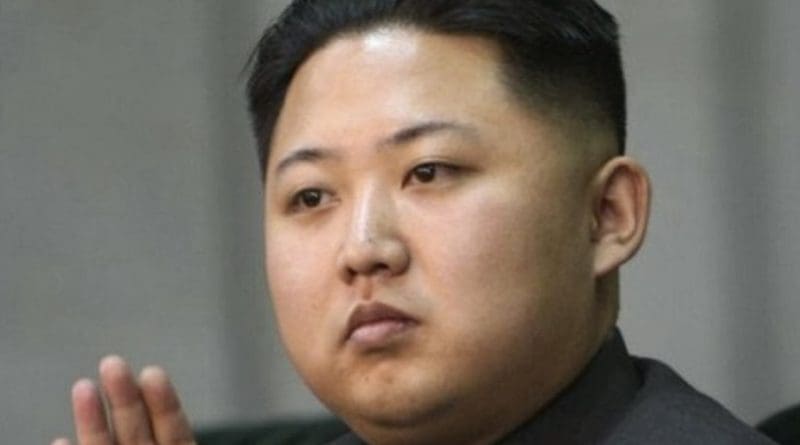The Ever-Expanding War On Terror – OpEd
By Ivan Eland
In an effort to further tighten the screws on North Korea in what is likely to be another failed U.S. attempt to convince North Korea to give up its nuclear program, President Trump put that country back on its list of countries sponsoring terrorism. North Korea will join Iran, Sudan and Syria on the list. In response, North Korea has conducted another ballistic missile test.
Originally, some justification existed for putting North Korea on this list in 1988. In 1987, according to a North Korean agent, Kim Jong-il, Kim Jong-un’s father and predecessor as North Korean leader, directed that a bomb be placed on a South Korean passenger jet, which resulted in the deaths of 115 civilians. Although for years after that incident, North Korea remained a quirky, despotic country trying to get nuclear weapons, it did not commit any acts that objectively could be called terrorism, if that term is used to describe deliberate attacks on civilians to attempt to scare them into pressuring their government for changes in policy. Showing that the U.S. terrorism list has a large political element to it, North Korea was only removed about 20 years later when President George W. Bush was trying to save a deal with North Korea that would have stopped its nuclear program—something that had nothing to do with whether North Korea was committing or sponsoring acts of terrorism.
Of course, President Trump’s re-imposing the moniker of “state sponsor of terrorism” on North Korea is also political. The move is designed to increase only symbolic pressure against a regime that is unlikely to give up its nuclear program, which among other things, is designed to deter the United States from ousting Kim Jong-un from power—just as the U.S. has done with the leaders of non-nuclear nations, such as Haiti, Panama, Serbia, Iraq, and Libya. Although North Korea certainly gets into mischief—shelling a South Korean island, sinking a South Korean Navy vessel, conducting a cyber attack on Sony Pictures, and assassinating a member of the North Korean “royal family” who could someday have taken Kim Jong-un’s job—none of these includes the mass slaughter of civilians for political purposes.
Castros’ Cuba also remained on the list of state sponsors of terrorism long after it stopped sponsoring such acts, simply because the United States did not like the Cuban government and wanted to keep maximum pressure on it. Laudably, President Obama, as part of his warming of relations with Cuba, finally took that country off the list in 2015. In addition, the other countries remaining—Iran, Syria, and Sudan—and many groups on the terrorism list don’t really focus their attacks on the United States. However, continuing its expensive role as the world’s policeman, despite having a national debt north of $20 trillion, the United States insists on making new enemies worldwide by calling out groups and nations that don’t focus their attacks on the United States—that is, fighting other countries’ battles for them.
And the expanding war on terrorism is not just to be found on paper. For example, to show he is tougher than Barack Obama, President Trump has unilaterally approved new authorities to attack miscreants across the globe. Obama had enlarged George W. Bush’s illegal and unending wars on terror in the developing world, and Trump is now trying to one-up Obama by further expanding these unconstitutional authorities. For example, in Somalia, the United States is escalating the attacks on the Islamist Shabab group.
Even in Afghanistan, in which the Congress passed a post-9/11 authority for the use of military force (AUMF), the Trump administration has expanded the authorities to attack opium labs that fund the militant Taliban insurgency. Let’s hope this war on narcotics goes better than the colossal waste of taxpayer dollars that the war on drugs in Latin America has become. And all of this escalation despite terrorism experts’ constant refrain that it difficult to kill your way out of an insurgency.
The war on terror failed long ago during the George W. Bush administration; expanding it both on paper and in the field may look tough, but it’s just doubling down on a dubiously counterproductive policy.
This article was published at Huffington Post and reprinted with permission.

